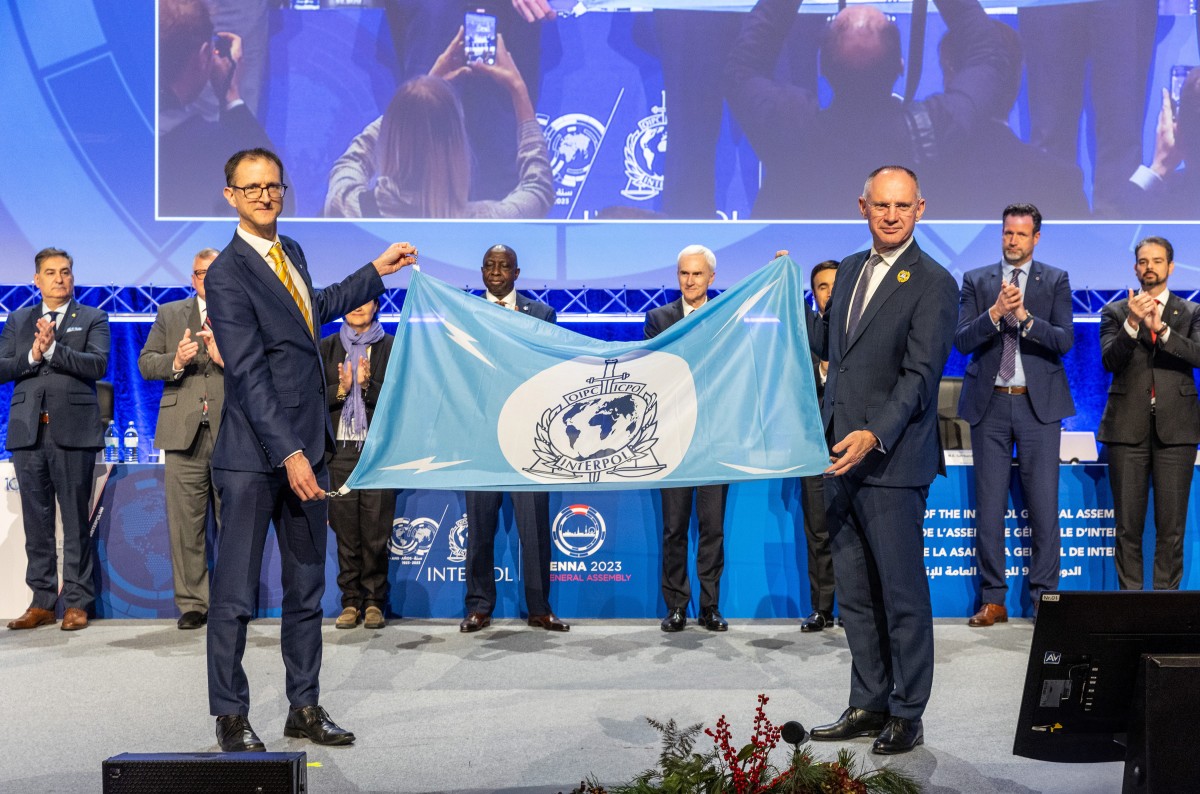Sponsored Content
Historic INTERPOL Meeting in Vienna Ends with Call to Fight Organized Crime
INTERPOL's 91st General Assembly in Vienna, held to mark the organization's 100th anniversary, ended with an urgent call to tackle the growing threat of transnational organized crime. The so-called "Vienna Declaration" outlines five priority measures to better support law enforcement agencies worldwide in the fight against this challenge.
 In response to the growth and sophistication of transnational organized crime, INTERPOL's centennial General Assembly closed with a call to action. / Picture: © BMI/Gerd Pachauer
In response to the growth and sophistication of transnational organized crime, INTERPOL's centennial General Assembly closed with a call to action. / Picture: © BMI/Gerd Pachauer
INTERPOL Secretary General Jürgen Stock described transnational organized crime as an epidemic and called for stronger networking of different sources of information to combat this threat. The General Assembly also adopted several resolutions on combating environmental crime and the sexual abuse of children on the Internet.
Austria's Interior Minister Gerhard Karner, as host,…
or Log In
Fast News Search





